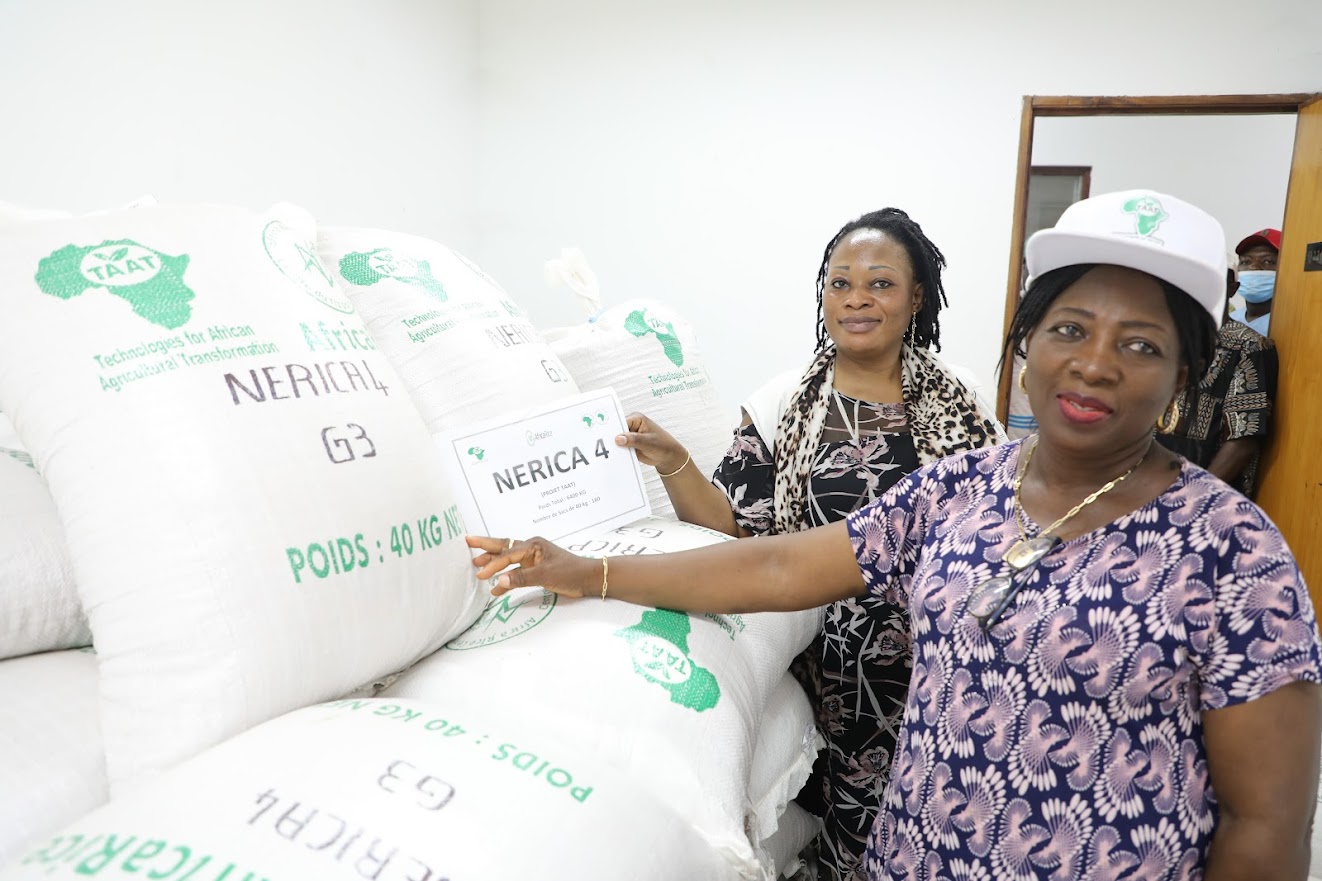Breaking Down the Barriers to Food Security: A Closer Look at TAAT’s role in combating hunger and malnutrition in Sierra Leone
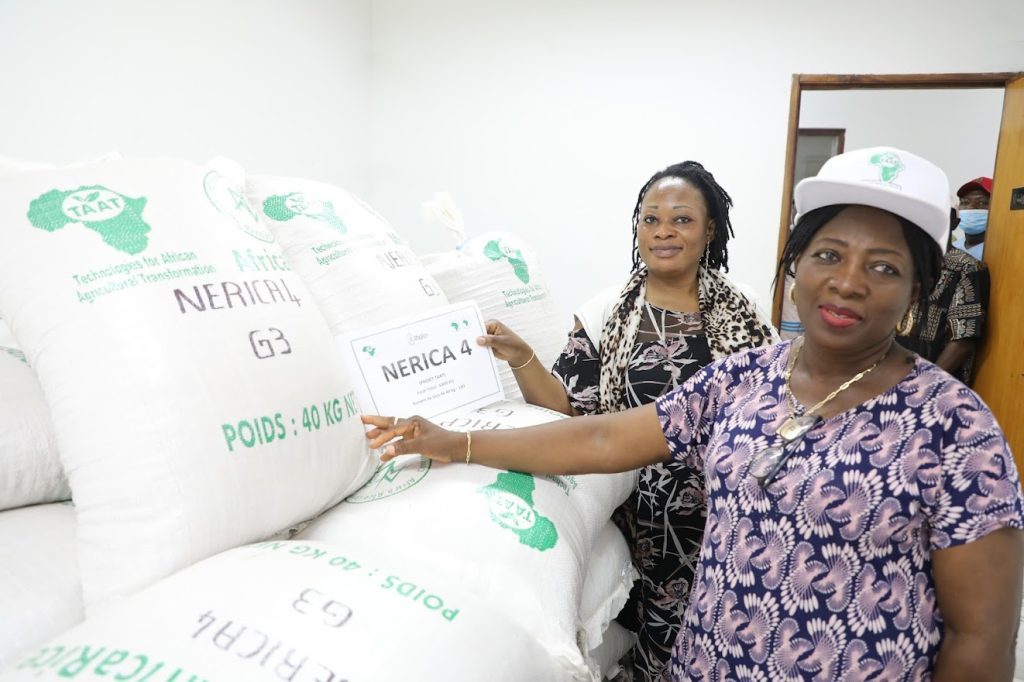
On 24th March 2021 and, in response to the increasing concerns about food insecurity and malnutrition on the continent due to climate change, the outbreak of COVID-19, the war in Ukraine and Russia, the Chair of the African Union (AU) requested the African Development Bank (AfDB) to access and provide a total of USD $5 million to address these issues in 16 African countries.
This funding by the AUC, named the Special Emergency Assistance Fund (SEAF) planned to tackle the post-COVID-19 negative impact on food security in Africa as reported by the Food and Agriculture Organization (FAO) in 2021.
For an initial allocation of $300,000 per country, AUC aimed at stimulating boosting seed production, seed production and sourcing, as well as delivering genetically improved seeds of different crops such as wheat, rice, maize, sorghum, cassava, and improved breeds of fish and small animals.
Countries were also instructed to choose three value chains to implement the project, but some countries exceeded this number.
The AUC provided US$5 million with $300,000 available to each country to stimulate and help amplify seed production, sourcing and delivering genetically improved certified seeds of maize, wheat, rice, and sorghum, cuttings of improved cassava, and improved breeds of fish and small animals.
The targeted countries were Angola, Burkina-Faso, Central Africa Republic, Chad, Democratic Republic of Congo, Ethiopia, Liberia, Mali, Mozambique, Niger, Nigeria, Sierra Leone, Somalia, South Sudan, Sudan, and Zimbabwe.
Out of the 16 countries invited to join in the SEAF intervention, eleven (11) completed their documentation processes and received funds between August 2021 to June 2022.
Innovative partnership model for technical assistance
The Technologies for African Agricultural Transformation (TAAT), an initiative of the Feed Africa Strategy of the African Development Bank to strengthen Africa’s agricultural systems through the deployment of path-breaking agricultural technologies using an innovative partnership with research institutes and centres across Africa, was engaged to translate the objectives of the fund into reality.
TAAT began by identifying entry points for partnerships for the inclusion of innovative technologies, engaging and working more effectively with Governments, Sub-Regional Organizations (SROs), national counterparts, development partners and the private sector in the respective countries.
In Sierra Leone, TAAT’s team of experts worked with the Government to ensure the best and most modern seed varieties were deployed and the necessary training on good agricultural practices (GAPs) and technical support were provided as needed by Government.
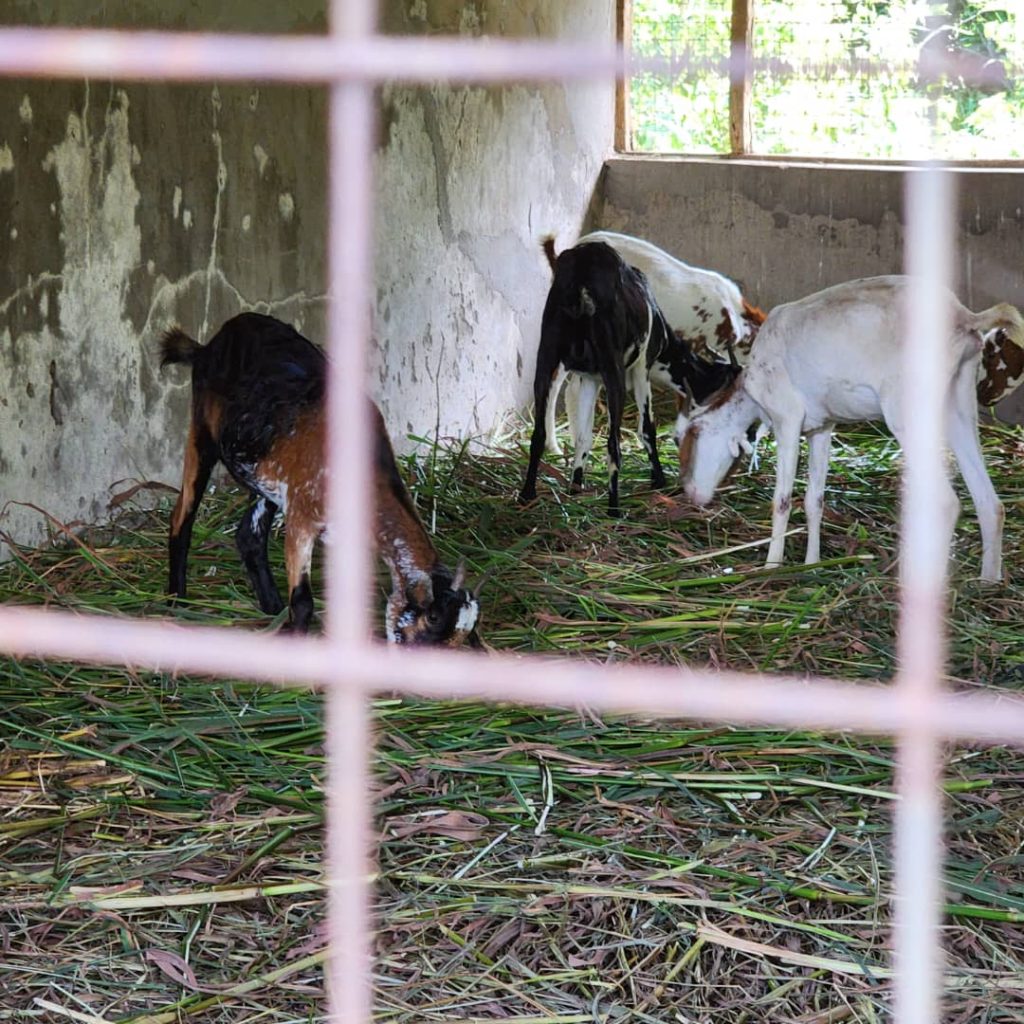
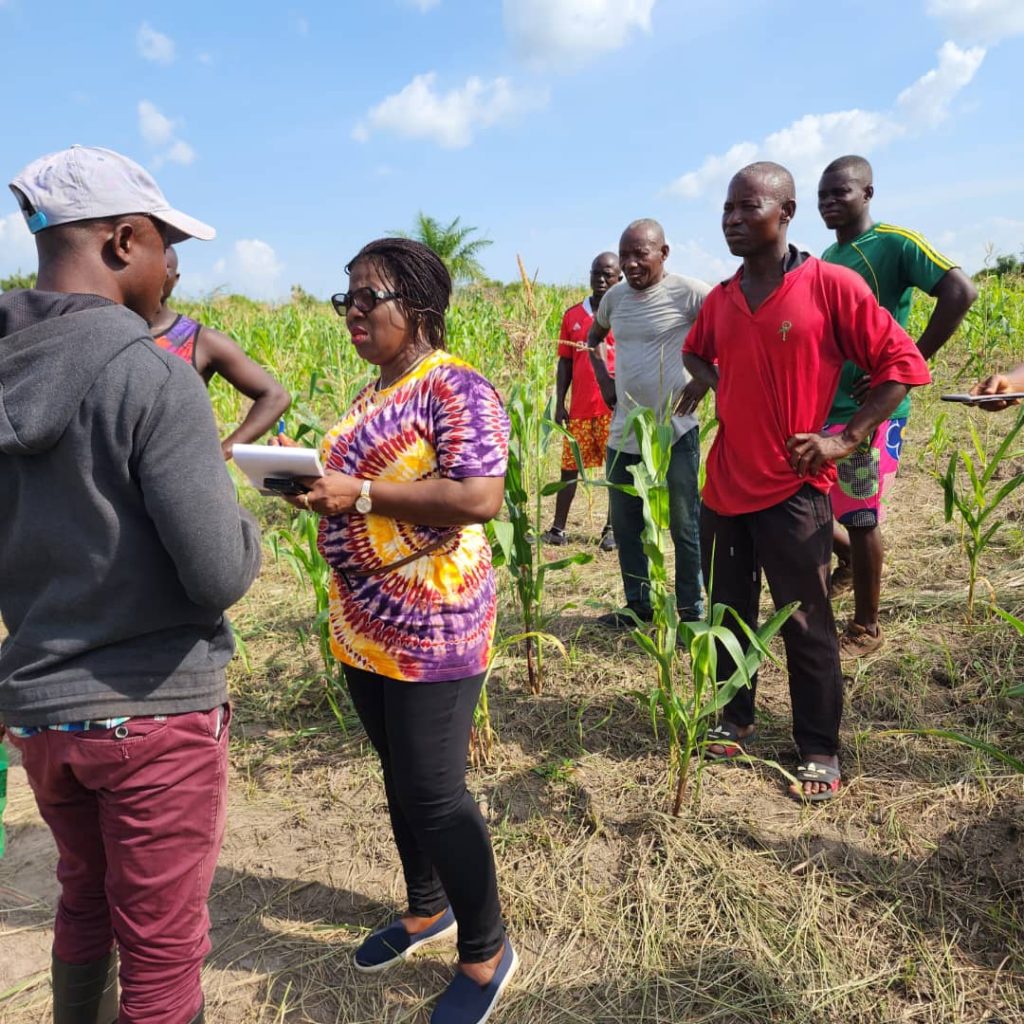
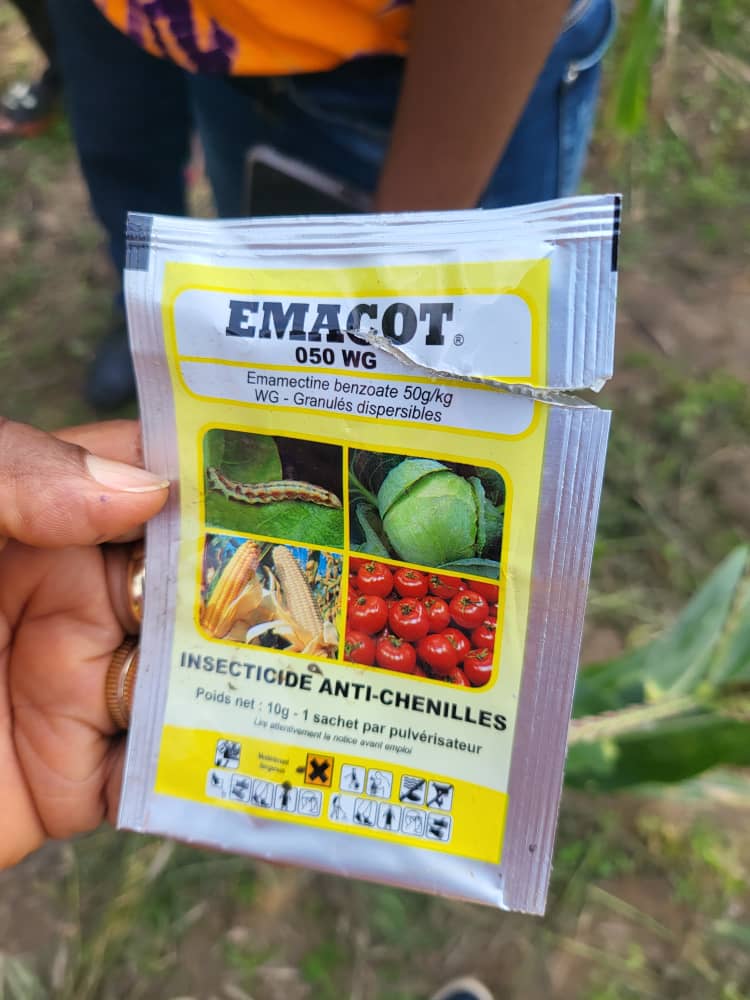
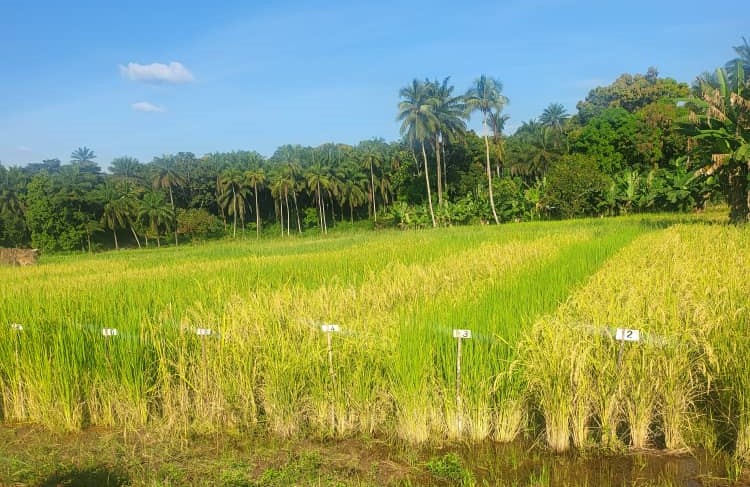
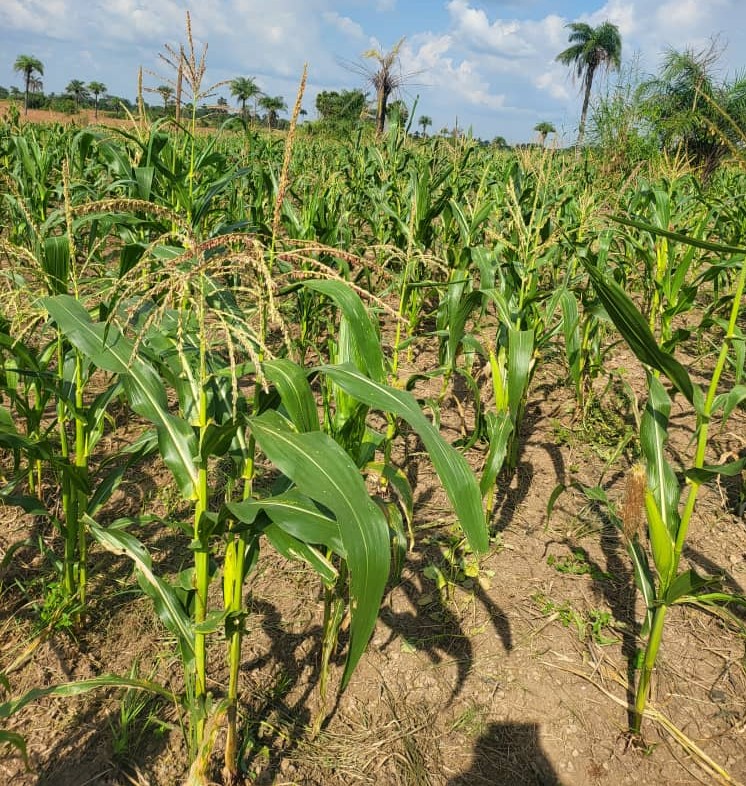
2021-2022 cropping season
The Government of Sierra Leone, through the Ministry of Agriculture, received $300,000 in funding support from the AU through the AfDB, in February 2021 in order to support 673 farmers in Sierra Leone with quality seeds of rice, maize and small livestock in the farming households in Kowa, Kamajei, Kaiyamba, Kagboro, Fakunya, Ribi, Taimide and Kori districts.
The total quantities of certified and foundation seeds supplied and distributed are – 57 MT of rice seeds (NERICA L-19 sub1 variety) and yellow maize 10 MT (western yellow variety). TAAT supported the sourcing of all the seeds and livestock breeds.
A total of 1,412 beneficiaries were registered on the e-platform, which comprised 912 for rice and 500 for maize, with 50.21% being female. Rice and maize seeds distribution was done via the e-platform. 200 sheep and goats were procured and are being monitored and managed.
2022/2023 cropping season
A total of 57MT of the ROK 34 variety, which is suitable for lowland ecologies – Inland Valley Swamp and Boli land were sourced locally from Seed Tech International and distributed to 517 and 395 smallholder farmers in Bonthe and Mayamba districts respectively for the 2022/2023 cropping season.
Post-distribution monitoring and supervision of beneficiaries was carried out by the Ministry officials (M&E, Crops and Extension) in the two districts. Technical support on agronomic practices is being provided to the targeted beneficiaries.
A total of 912 ha of rice fields and 500 ha of maize were cultivated in the country. Counterpart support from the Ministry of Agriculture for the project amounted to US$474,592.12. The total yield of rice production hit 2,097MT with a total value of $1,312,101.62, while the gross income per beneficiary attained $1,438.71.
Despite reported floods in some communities, such as Bonthe district, the yield was satisfactory. Processing of paddy rice for the next season had also been completed.
The average yield for maize was 1.8 MT/ha, while the total production was 900 MT with a value of $567,664.10. The gross income per beneficiary was $1,135.33. This has helped to address the challenge of access to seeds as well as increase availability of poultry feed, thus reducing the effect of the crisis.


